Introduction
Imagine it’s 3 AM and you’re in bed, scrolling through your phone. You can’t sleep. You’re not alone. Millions struggle with poor sleep quality, not knowing that simple habits can change their nights.
This issue is called poor sleep hygiene. It’s like brushing your teeth before you sleep. It involves daily habits and the environment for quality sleep. It’s your nightly routine for success in dreams and waking life.
We’ll dive into what sleep hygiene means, why it’s key for your health, and how to improve it tonight. Whether you have occasional sleep issues or chronic problems, these strategies will help you sleep better.
Table of Contents
What Is Sleep Hygiene?
Sleep hygiene refers to healthy sleep habits and an optimal sleep environment. It’s not about being “clean” while sleeping. It includes your bedtime routine, bedroom setup, and pre-bed activities.
Good sleep hygiene helps your body’s natural sleep cycle work well. This makes it easier to fall and stay asleep, waking up refreshed.
Here’s a look at good versus poor sleep hygiene:
Good Sleep Hygiene Examples:
- Going to bed and waking up at the same time daily
- Creating a calm, dark sleeping environment
- Avoiding screens for an hour before bedtime
- Having a relaxing pre-sleep routine
Poor Sleep Hygiene Examples:
- Irregular sleep schedules, especially on weekends
- Using electronic devices in bed
- Consuming caffeine late in the day
- Using your bedroom for work or entertainment
Small, consistent changes in sleep hygiene can greatly improve your day-to-day life.
Why Good Sleep Hygiene Matters
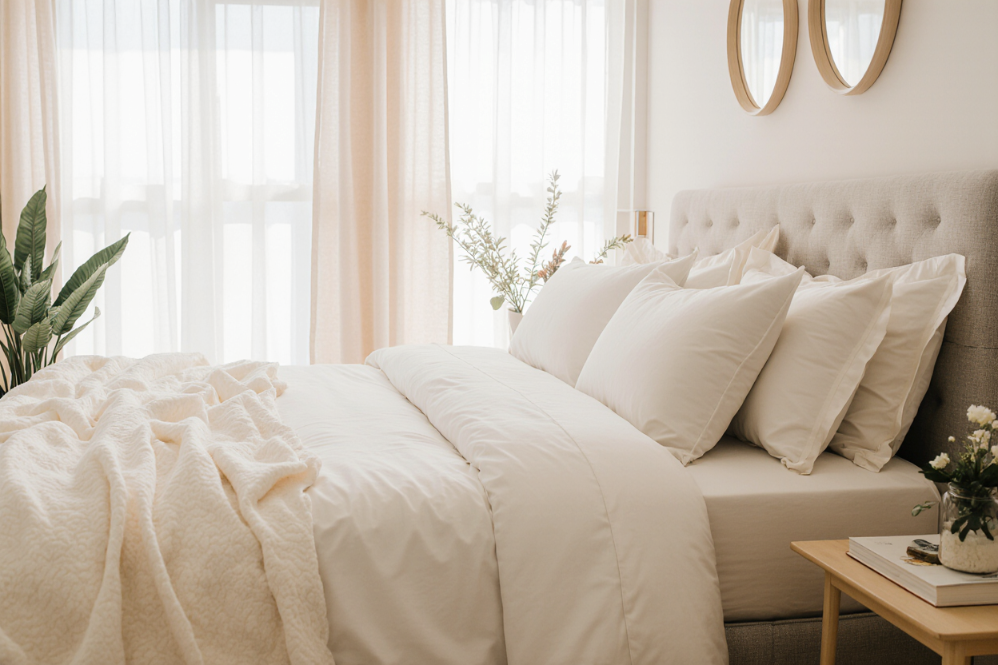
Quality sleep is essential, not a luxury. It affects your health and daily performance. Let’s see how sleep hygiene impacts your life.
Supports Mental Health

Your brain processes emotions and memories during sleep. Poor sleep hygiene disrupts this process.
Studies show that good sleep habits lower anxiety and depression rates. The National Sleep Foundation found regular sleepers are 23% less likely to have mood disorders.
Harvard Health Publishing says quality sleep boosts your body’s repair and immune system. It also clears toxins, keeping your brain sharp and emotions stable.
Boosts Immune Function

Your immune system needs enough sleep to work well. Deep sleep stages produce cells that fight infections.
The CDC says over a third of adults in the U.S. don’t get enough sleep. Those sleeping less than seven hours are three times more likely to get a cold. Good sleep hygiene is key for immune health, especially during flu season or stress.
It also reduces body inflammation, lowering the risks of heart disease and diabetes.
Enhances Focus and Productivity
Ever notice how hard things seem after a bad night’s sleep? That’s because sleep affects how well you think, make decisions, and solve problems.
The National Institutes of Health (NIH) found that good sleepers do 40% better on focus tasks. This means they do better at work, school, and in daily life.
Quality sleep also boosts creativity and learning. REM sleep helps your brain make new connections. This helps you remember things and solve problems in new ways.
Common Sleep Disruptors to Avoid
Knowing what messes with your sleep is as important as knowing what helps it. Here are the main things that can ruin your sleep:
📱 Blue Light Exposure – Screens give off blue light that makes your brain think it’s daytime. This stops melatonin from being made.

☕ Late-Day Caffeine – Caffeine stays in your system for 6-8 hours. It can mess with your sleep, even if you don’t feel awake.
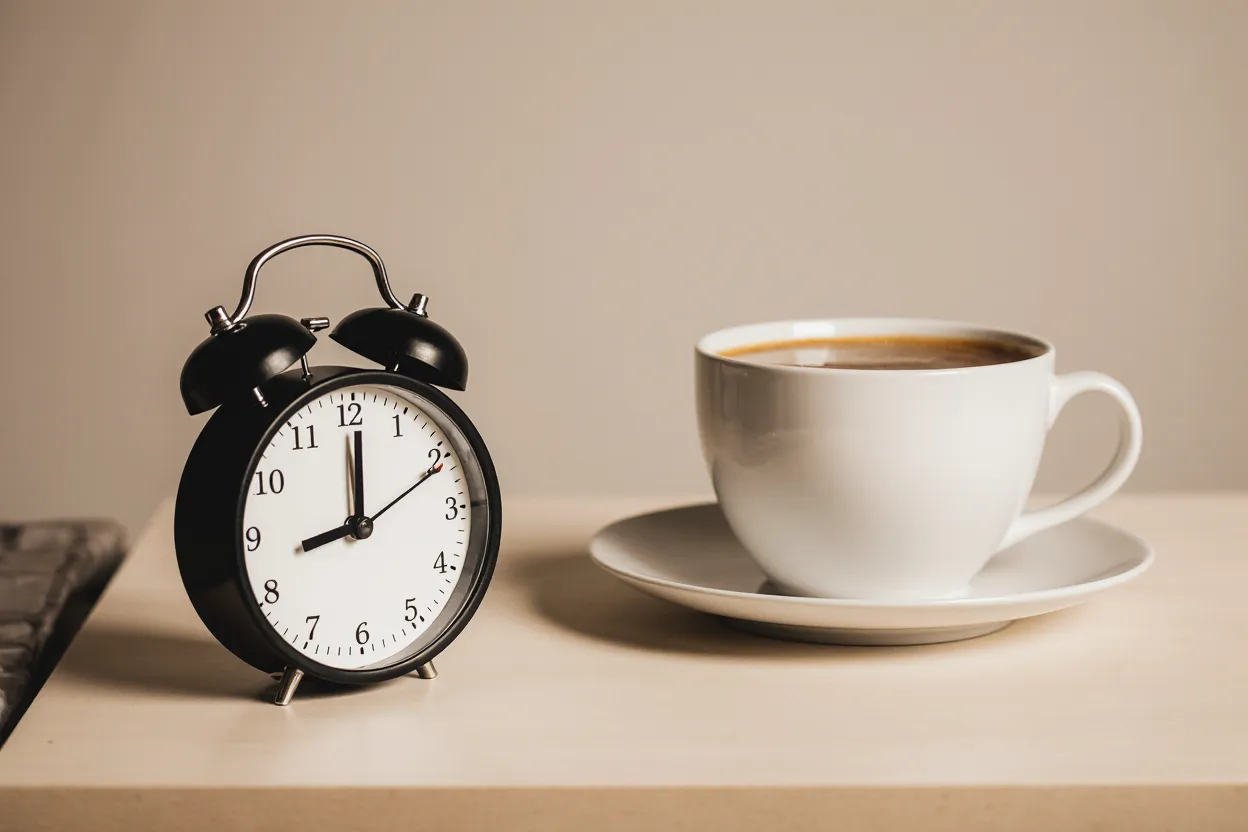
⏰ Irregular Sleep Schedule – If you go to bed and wake up at different times, your body gets confused.
🍽️ Heavy Evening Meals – Eating big meals close to bedtime makes your stomach work hard. It should be relaxing, not busy.
🌡️ Bedroom Temperature Issues – If your room is too hot or cold, your body can’t get to the right sleep temperature.
🔊 Noise and Light Pollution – Outside noise and light can break up your sleep, even if you don’t wake up.
🍷 Alcohol Before Bed – Alcohol might make you sleepy at first, but it messes with your sleep later.
🧠 Stress and Racing Thoughts – Stress and busy thoughts keep your nervous system active. It’s hard to fall asleep when you’re stressed.
🛏️ Uncomfortable Sleep Surface – A bad mattress or pillows can be uncomfortable. This can wake you up during the night.
Finding out what affects your sleep is the first step to better sleep hygiene.
Proven Tips to Improve Sleep Hygiene
Improving your sleep doesn’t mean you have to change your whole life. These tips are based on science. They help you build good sleep habits slowly.
Create a Relaxing Bedtime Routine
Your body likes routine, especially for sleep. A bedtime routine tells your brain it’s time to relax & sleep.
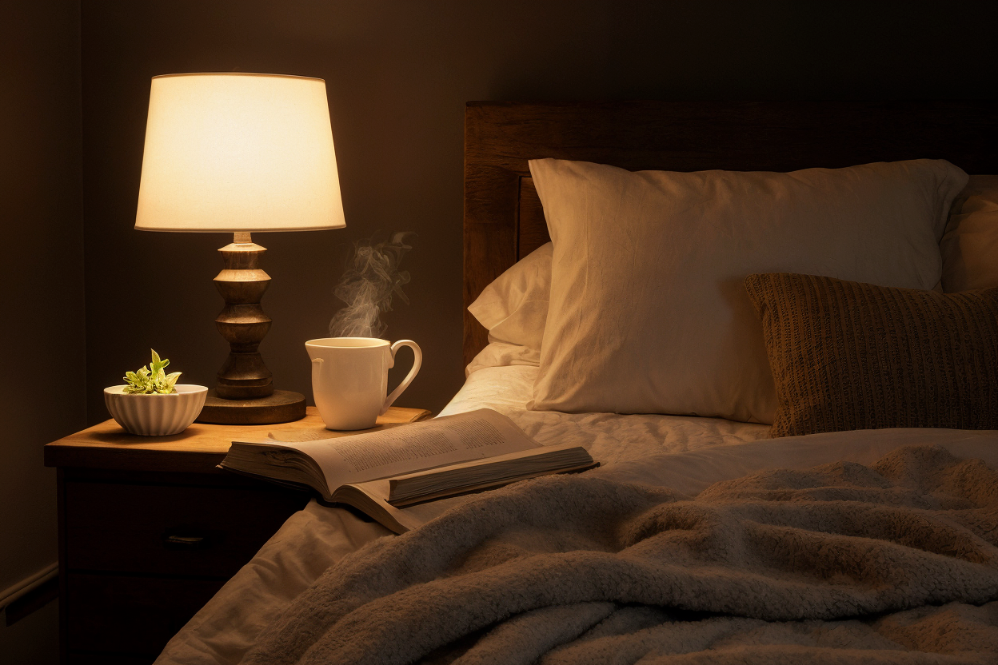
Start your routine 30-60 minutes before bed. It could include:
🌙 Gentle Activities: 📖 Reading books (physical books are better than electronics) 🛁 Taking a warm shower 🧘 Doing light stretching or yoga 📝 Writing in a journal or diary 🎵 Listening to calming music or nature sounds
✅ Preparation Tasks: 💡 Dimming lights in your home 👕 Getting clothes ready for the next day 🧹 Doing a quick tidy-up to make your space peaceful 🛏️ Getting your bedroom ready for sleep
Choose activities that relax you and can be done every night. Avoid anything that gets you excited or stressed, like intense exercise or work.
How to store fresh blueberries Your Complete Guide to Keeping Them Fresh Longer
How to store fresh blueberries Your Complete Guide to Keeping Them Fresh…
Optimize Your Sleep Environment
Your bedroom should be a cozy place for sleep. Small changes can make a big difference on how well you sleep.
🌡️ Temperature Control: Keep your bedroom cool, between (15-19°C). A cooler room helps your body temperature drop as you sleep.
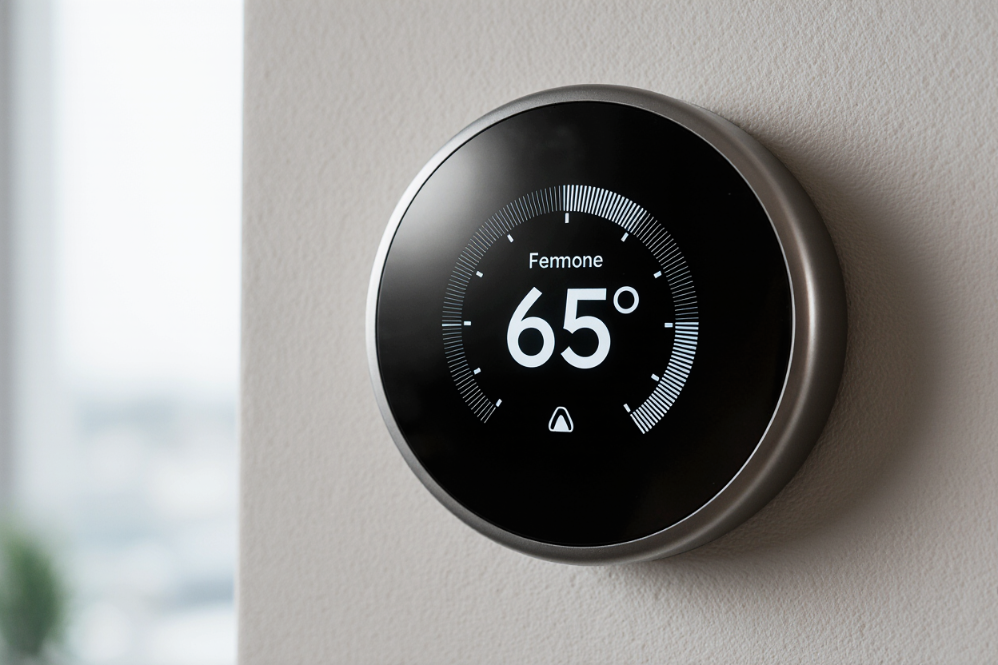
💡 Light Management: Darkness help your body make melatonin. Use blackout curtains, an eye mask, or cover LED lights. For safety, use red-tinted bulbs that don’t mess with your sleep hormones.
🔇 Sound Environment: Aim for quiet, but not complete silence. Gentle sounds like white noise or a fan can help by blocking out loud noises.
🛏️ Comfort Essentials: Get a supportive mattress and pillows that fit your sleep style. Your bedding should be comfy and let air through. Replace your pillows every 1-2 years.
📱 Technology Boundaries: Try to keep phones, tablets, and TVs out of your bedroom. If you must have your phone nearby, use airplane mode and keep it face-down.
Be Mindful of Diet and Exercise
What you eat and when you exercise affect your sleep. You don’t need to change your whole life. Just focus on timing.
🍽️ Nutrition Timing:
- Finish big meals 2-3 hours before bedtime
- If you’re hungry at bedtime, have a light snack with tryptophan (like turkey, milk, or bananas)
- Limit caffeine after 2 PM, or earlier if you’re sensitive
- While alcohol might make you sleepy, avoid it 3 hours before bedtime for better sleep
🏃 Exercise Benefits: Regular exercise can help fall asleep faster & sleep longer. But timing is key:
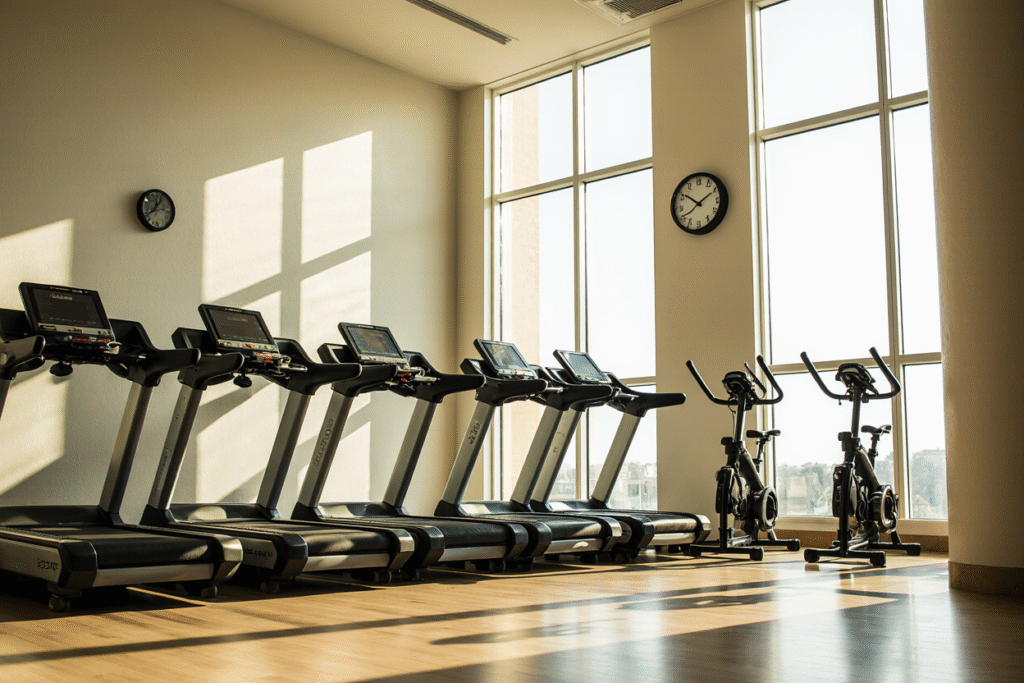
- 🌅 Morning Exercise: Morning workouts help set your circadian rhythm
- ☀️ Afternoon Activity: Exercise 4 to 6 hours before bedtime can lead to deeper sleep
- 🌆 Evening Caution: Avoid intense workouts 3 hours before bedtime
Even a 10-minute walk during lunch can help you sleep better that night.
Set a Consistent Sleep-Wake Schedule
This is crucial for good sleep, but it’s hard to stick to. Your body likes routine, and irregular sleep can mess with your natural rhythm for days.
Weekday Strategy: Pick a bedtime that lets you sleep 7-9 hours before waking up. Stick to it, even if you don’t feel tired. Consistency is key.
Weekend Approach: Keep your weekend sleep close to your weekday times. Avoid big sleep schedule changes, as they can feel like jet lag.
Gradual Adjustments: If you need to change your sleep schedule, do it slowly. Move your bedtime and wake time by 15-30 minutes each day until you reach your goal.
Light Exposure: Get bright light in the morning, preferably from the sun. This helps your body know when to sleep & wake up.
When to Seek Help
While better sleep habits can solve many problems, sometimes you need a professional’s help. If you’re facing:
⚠️ Persistent Sleep Problems: 😴 It takes more than 30 minutes to fall asleep regularly 🌙 You wake up a lot during the night 😪 You don’t feel refreshed after sleeping enough 💤 You’re too tired during the day
🩺 Physical Symptoms: 😤 You snore loudly or have breathing stops at night 🦵 Your legs move a lot or feel restless 🤕 You have headaches or a dry mouth in the morning 💔 You feel chest pain or have trouble breathing when lying down
📉 Impact on Daily Life: 🧠 You can’t focus at work or school 😠 You’re more irritable than usual 💔 Your relationships suffer because of sleep issues 🚗 You’re too sleepy to drive safely
Chronic sleep issues might mean there’s a health problem that needs a doctor’s care. Improving sleep habits works best with medical help when needed.
Resources for Better Sleep
For more help on better sleep, check out these trusted sources:
🏥 CDC Sleep and Sleep Disorders – Detailed info on sleep health, including tips for different ages and sleep disorder resources
🛏️ Sleep Foundation – Articles on sleep science, product advice, and ways to improve your sleep
🔬 NIH Sleep Health Information – Insights into sleep deprivation & healthy sleep habits from the National Heart, Lung, & Blood Institute
🎓 Harvard Health Sleep Resources – Sleep tips from Harvard Medical School experts
📚 Sleep Hygiene Research (PubMed) – Research on sleep and sleep hygiene practices
🏥 Mayo Clinic Sleep Disorders Center – Professional sleep medicine resources and treatment options
These groups update their info with the latest sleep research. They offer detailed info on sleep concerns.
Final Thoughts
Improving sleep isn’t about being perfect. It’s about making habits that help your body sleep well. The tips we shared work because they match how your body sleeps, not against it.
Start with one or two tips that appeal to you. Maybe it’s a 30-minute wind-down routine or blackout curtains. As these habits become part of your life, you can add more.
Good sleep improves your health, relationships, work, and happiness. You deserve to wake up feeling refreshed & ready for the day.
Ready to start building your sleep routine today? Choose one strategy from this post and try it for a week. Your future self will thank you for better sleep habits.
Health”

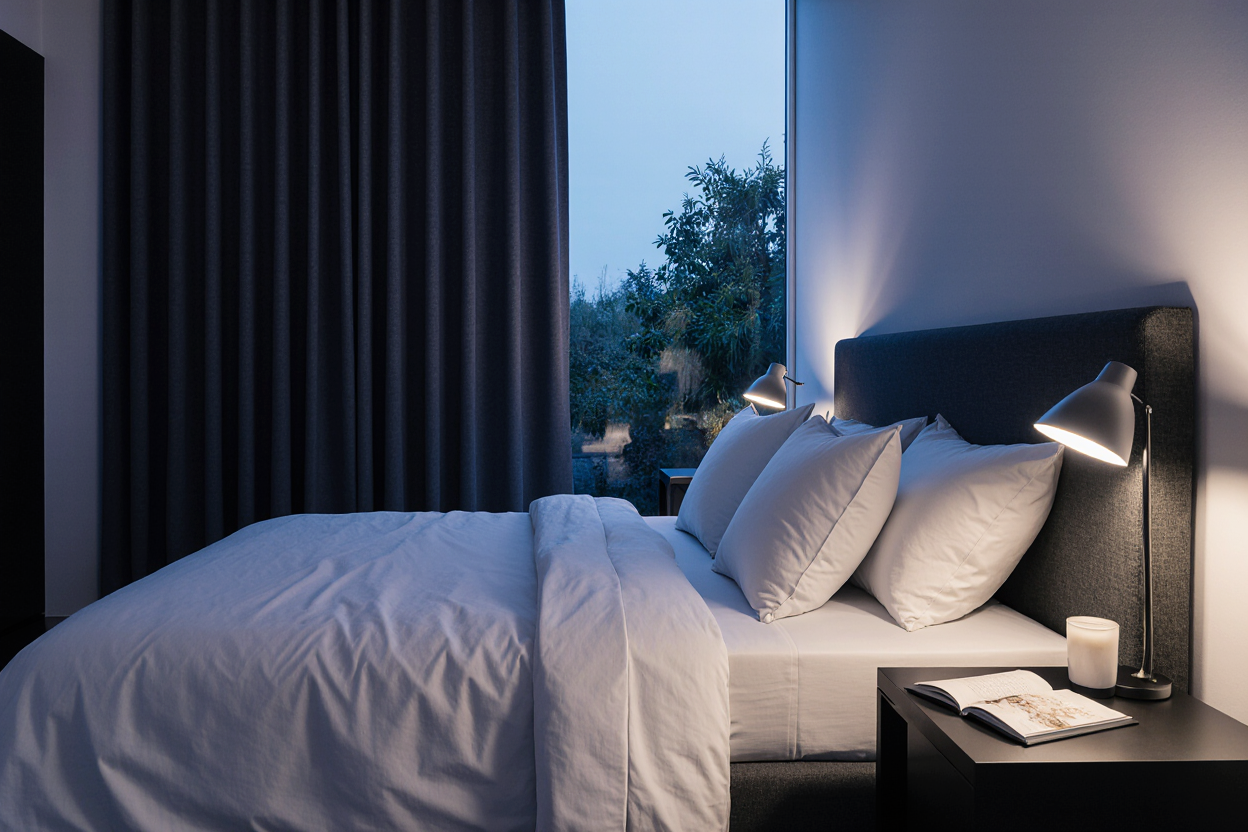







Leave a Reply